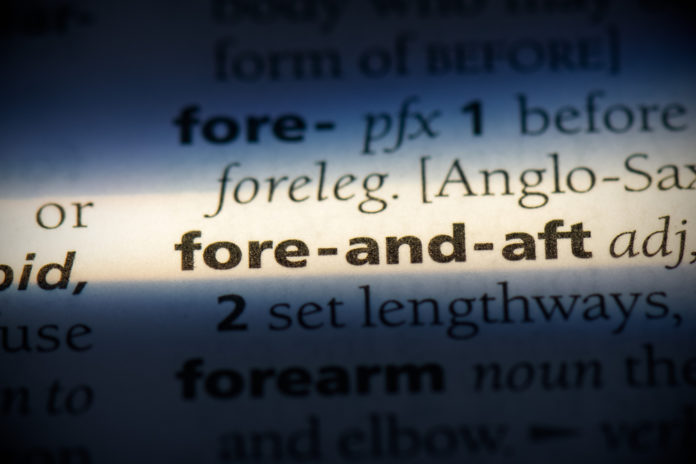Protest challenging offeror’s elimination from the competition is denied in part and dismissed in part. The solicitation required offerors to propose a maintenance stand for aircraft with telescoping decking that extended fore and aft. The decking on the protester’s stand extended inboard and outboard. The protester argued that the solicitation did not define the terms “fore” and “aft” so the agency applied unstated criteria when it interpreted “fore” and “aft” as applying to the front and tail of a plane. GAO, however, found that “fore” and “aft” were common, well-established terms that referred to the front and tail of an aircraft. The protester also alleged that the agency unequally evaluated proposals. But GAO found this argument was really a challenge to the terms of the solicitation that should have been raised before the proposal deadline.
The Navy issued a solicitation for maintenance stands—a platform that provides a working area for maintenance crews working on aircraft. The solicitation sought a brand name product—a stand manufactured by FlexDecks, Inc.—or equivalent with the same characteristics as the brand name product.
FlexDecks, the manufacturer of the brand name product, and Creative Custom Products, both submitted bids. The Navy found Creative Custom’s stand technically unacceptable and eliminated the company from the competition. The Navy awarded the contract to FlexDecks. Creative Custom protested.
The solicitation required offerors to propose a stand with telescoping decking that could be “extended or retracted fore and aft.” The Navy found Creative Custom’s stand deficient because instead of extending to front and tail ends of the plane, its telescoping decking extended inboard and outboard, that is, toward and away from the plane. Creative Custom alleged that under the solicitation, “fore” and “aft” referred to functional purposes, not to the front and back of aircraft. The Navy therefore applied unstated criteria because the solicitation did not define “fore” and “aft” as applying to the nose and the tail of a plane.
GAO rejected this argument. It noted that the common dictionary definition of “fore” refers to the front part of a ship. The definition of “aft” refers to the stern of a ship of the tail of an aircraft. Those terms could not have referred to anything other than the front and tail of an aircraft. Moreover, it was clear from the solicitation’s assembly instructions that the “fore and aft” directional requirement had to apply to the front and tail end of plane. For example, the inboard and outboard sides of the decking had to be able to attach to other decks. Indeed, it was apparent from its proposal that Creative Custom understood that “fore” and “aft” referred to the front and tail.
GAO also found that a second deficiency assigned to Creative Custom’s proposal was reasonable. The solicitation required offerors to include telescoping sliders along the aft and outboard edges of their decks. But Creative Custom’s stand inset the telescoping decking within a fixed edge. The Navy was concerned that these inset sliders would take too much time to disassemble resulting in inefficiencies. GAO saw no basis to object to the Navy’s evaluation.
Finally, Creative Custom argued that agency evaluated proposals unequally because FlexDecks’ did not have telescoping sliders on the aft and outboard edges. But GAO found that this was really a disguised challenge to the terms of the solicitation. The solicitation defined the minimum characteristics of the brand name product. Thus, those characterizes should reflect the brand name product. Any contention that the brand name product does not meet the salient characteristics in the solicitation is an argument that the solicitation is defective. If Creative Custom objected to the terms of the solicitation, it had to raise that argument before the solicitation deadline. GAO dismissed the unequal treatment argument as untimely.
Creative Custom is represented by Lawrence. J. Sklute and Lana Meller of Sklute & Associates. The intervenor, FlexDecks, is represented by Tenley A. Carp, Georgina C. Shepard, Samuel M. Shapiro, and Andrew C. Stevens of Arnall Golden Gregory LLP. The agency is represented by David S. Castro and Karin S. Wiechmann of the U.S. Navy. GAO attorneys Paula A. Williams and Edward Goldstein participated in the preparation of the decision




